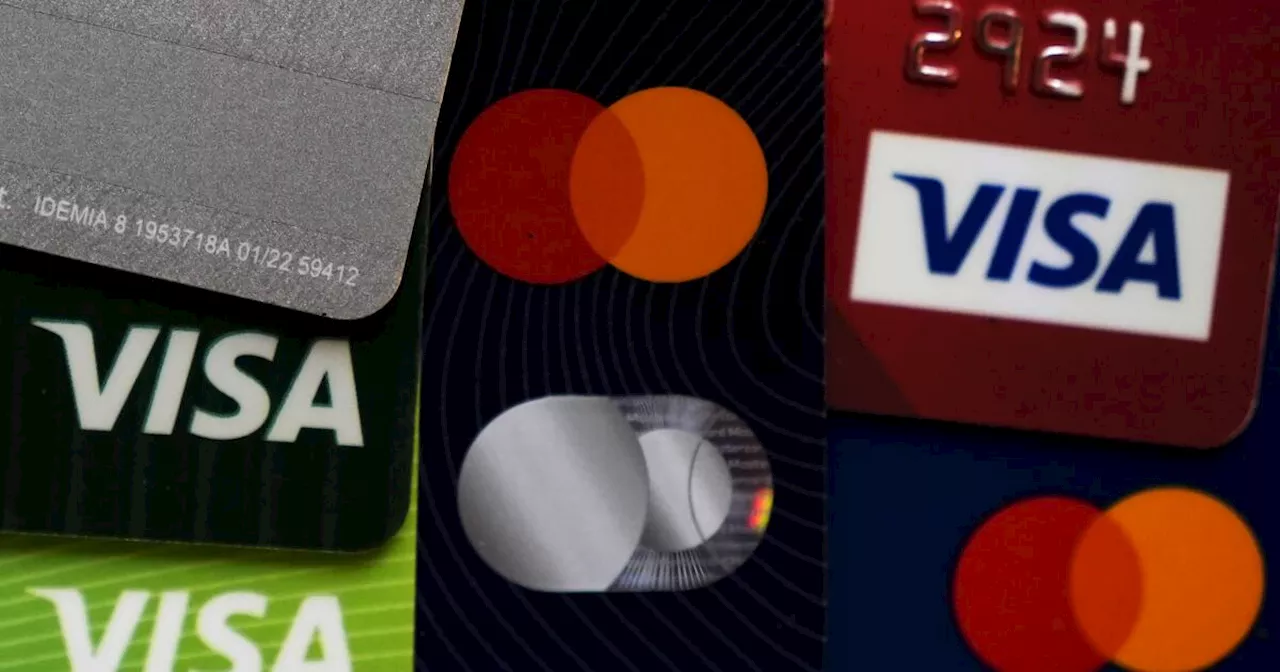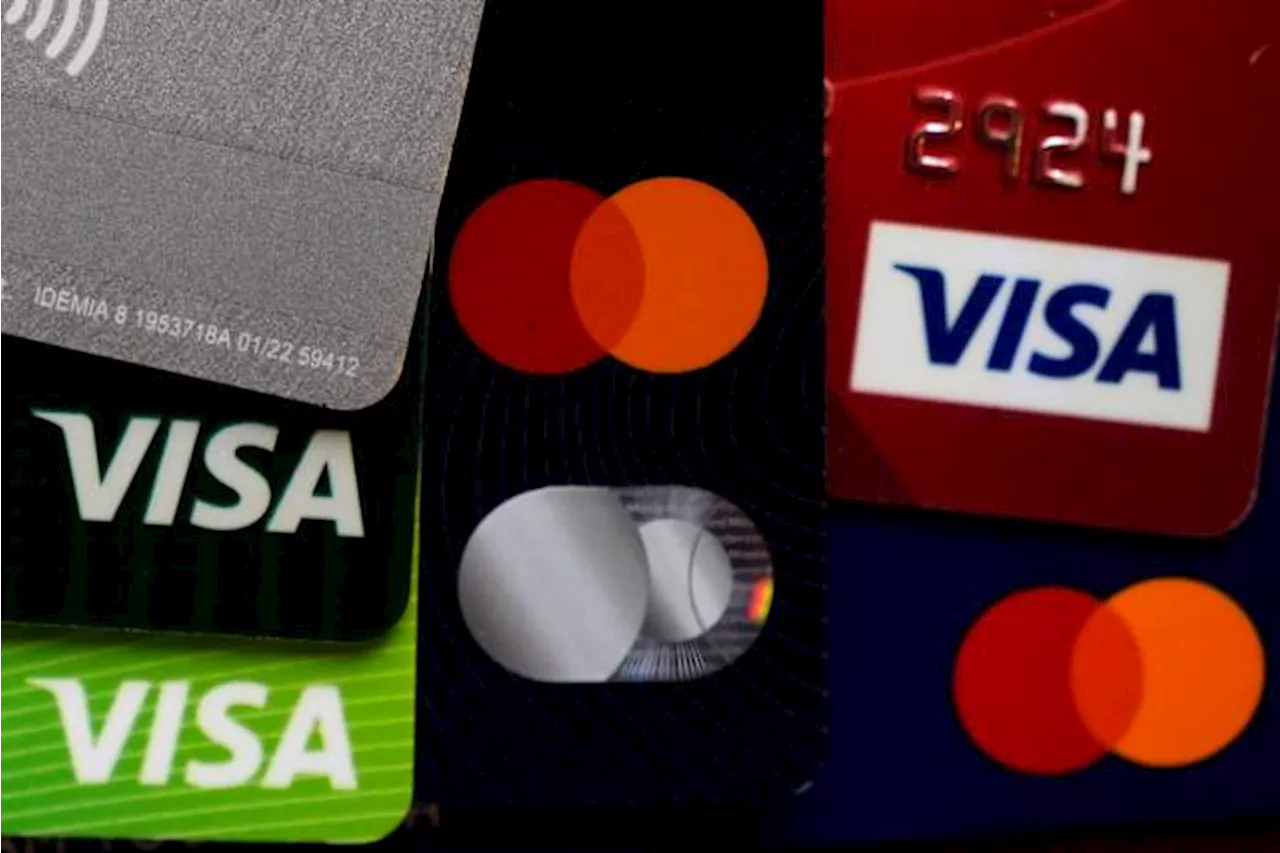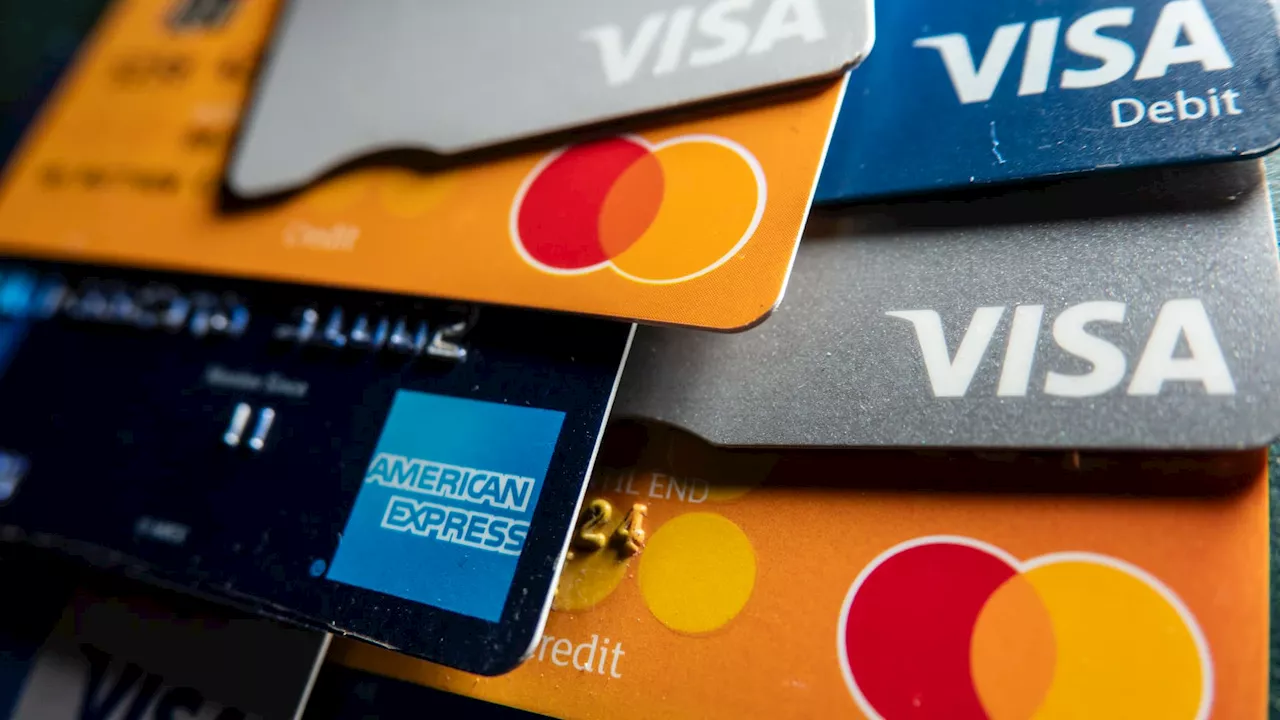The share of credit card holders making only minimum payments has reached a 12-year high, signaling increasing financial pressure on consumers. While consumer spending remains robust, the rising delinquency rates and reliance on credit for essential purchases raise concerns about the long-term health of the economy.
The share of active credit card holders just making minimum payments climbed to 10.75% in the third quarter of 2024, marking the highest level since records began in 2012. The percentage of cardholders over 30 days past due also surged to 3.52%, a significant increase from 3.21% in the previous quarter. This represents a more than 10% jump and more than doubles the delinquency level seen during the pandemic's low point in the second quarter of 2021.
While these figures indicate a concerning trend, they remain below the 6.8% peak witnessed during the 2008-09 financial crisis, suggesting that the economy is not yet experiencing serious strain. Experts caution that the situation is fluid and could change rapidly. Consumer spending, a key driver of the US economy, has continued to rise, albeit at a slower pace. Goldman Sachs reported that adjusted for inflation, consumer spending increased by 2.9% year-on-year in November. The firm predicts that consumer spending will moderate in 2025 but still grow at a healthy 2.3% real rate. However, the rising cost of borrowing, particularly on credit cards, is putting pressure on household budgets. The average credit card balance currently stands at $10,563, and making only minimum payments would take 22 years and cost $18,000 in interest. A recent survey by NerdWallet revealed that a substantial percentage of consumers are struggling to keep up with their credit card payments. The survey found that 22% of respondents stated they are only making minimum payments on their credit cards. This trend is further exacerbated by rising interest rates and the increasing use of credit cards for essential purchases. The Philadelphia Fed reported that the total amount owed on revolving credit has surged to $645 billion, a 52.5% increase since the second quarter of 2021. The report also highlights a concerning trend in the mortgage market. Mortgage originations have plummeted to a 12-year low in the third quarter, with the total value of new mortgages issued falling to $63 billion, a stark contrast to the $219 billion recorded in the third quarter of 2021. High mortgage rates are discouraging refinancing, and debt-to-income ratios on home loans are on the rise, reaching 26% – a 4 percentage point increase over the past five years.
Credit Card Delinquencies Consumer Spending Economy Inflation Interest Rates
United States Latest News, United States Headlines
Similar News:You can also read news stories similar to this one that we have collected from other news sources.
 Credit Card Debt Forgiveness With a Low Credit ScoreThis article explores the possibility of credit card debt forgiveness even with a low credit score. It discusses the risks of high credit card interest rates, the challenges of debt repayment with a low credit score, and the potential benefits of debt forgiveness programs.
Credit Card Debt Forgiveness With a Low Credit ScoreThis article explores the possibility of credit card debt forgiveness even with a low credit score. It discusses the risks of high credit card interest rates, the challenges of debt repayment with a low credit score, and the potential benefits of debt forgiveness programs.
Read more »
 How Long Do Settled Credit Card Accounts Stay on Your Credit Report?Discover the impact of settled credit card accounts on your credit score and learn how long this information remains on your credit report. Understand the implications for your financial future and explore strategies for rebuilding your credit.
How Long Do Settled Credit Card Accounts Stay on Your Credit Report?Discover the impact of settled credit card accounts on your credit score and learn how long this information remains on your credit report. Understand the implications for your financial future and explore strategies for rebuilding your credit.
Read more »
 Florida's Credit Card Delinquency Rate Soars to Second Highest in the NationFlorida faces a growing credit card debt crisis with the second-highest delinquency rate in the U.S. at 11.68 percent, surpassing states like New York, Texas, and California. This alarming trend highlights the financial struggles faced by Floridians, with an estimated 1 in 10 credit card accounts seriously delinquent. The article explores the consequences of credit card delinquency, including damaged credit scores, late fees, and potential legal action.
Florida's Credit Card Delinquency Rate Soars to Second Highest in the NationFlorida faces a growing credit card debt crisis with the second-highest delinquency rate in the U.S. at 11.68 percent, surpassing states like New York, Texas, and California. This alarming trend highlights the financial struggles faced by Floridians, with an estimated 1 in 10 credit card accounts seriously delinquent. The article explores the consequences of credit card delinquency, including damaged credit scores, late fees, and potential legal action.
Read more »
 US Credit Card Defaults Soar to 14-Year HighCredit card defaults in the U.S. have reached a record $46 billion from January through September 2024, driven by high credit card debt and inflation. Many consumers are struggling to keep up with payments, leading to serious consequences including damaged credit scores and difficulty obtaining future credit. Experts recommend proactive steps like negotiating with banks, seeking credit counseling, and creating a budget to avoid falling further into debt.
US Credit Card Defaults Soar to 14-Year HighCredit card defaults in the U.S. have reached a record $46 billion from January through September 2024, driven by high credit card debt and inflation. Many consumers are struggling to keep up with payments, leading to serious consequences including damaged credit scores and difficulty obtaining future credit. Experts recommend proactive steps like negotiating with banks, seeking credit counseling, and creating a budget to avoid falling further into debt.
Read more »
 Holiday Debt Blues: Experts share tips for tackling credit card balances in 2025The holidays may be over, but many are still paying off their holiday debt. A survey by LendingTree found consumers accumulated an average of $1,200 in debt during the holiday season.
Holiday Debt Blues: Experts share tips for tackling credit card balances in 2025The holidays may be over, but many are still paying off their holiday debt. A survey by LendingTree found consumers accumulated an average of $1,200 in debt during the holiday season.
Read more »
 8 ways a credit card debt lawsuit can be dismissedIf you're being sued over delinquent credit card debt, there are a few ways you could get the lawsuit dismissed.
8 ways a credit card debt lawsuit can be dismissedIf you're being sued over delinquent credit card debt, there are a few ways you could get the lawsuit dismissed.
Read more »
